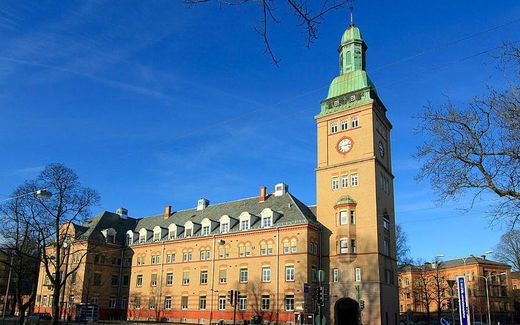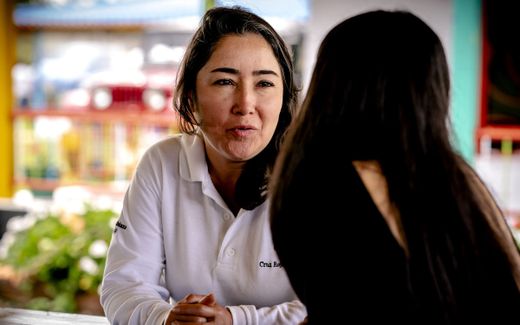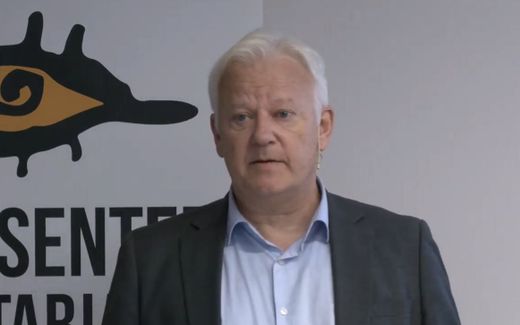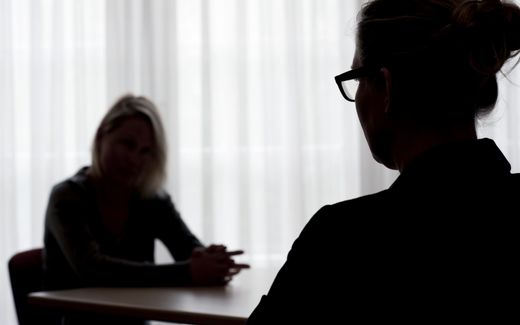Norwegian government presents legislation banning conversion therapy; Christians concerned
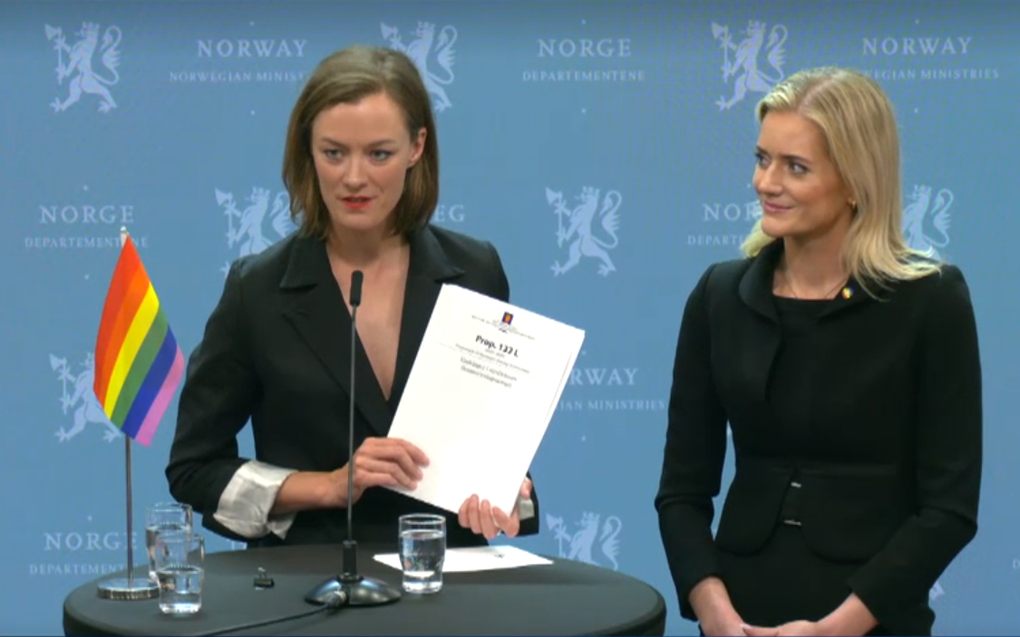
It will be prohibited to use medical or religiously based methods “to influence the person concerned to change, deny or suppress their sexual orientation or gender identity.” Photo Regjeringen.no
Northern Europe
The Norwegian government wants to ban conversion therapy. Christians are critical of the ban, especially because of its vagueness. “This is a sad day.”
The rainbow flag stood proudly beside the ministers as they announced that the Norwegian government had introduced a bill to ban conversion therapy. The goal of this law proposal is to “secure the lives” of everyone who is pressured to suppress who they are “to fit in with the family, the congregation or the environment they are a part of,” the Minister of Equality, Anette Trettebergstuen, told the press.
The law should ban all forms of conversion therapy and its marketing. More specifically, it will be prohibited to use medical or religiously based methods “to influence the person concerned to change, deny or suppress their sexual orientation or gender identity”.
People can also be punished if they offer these practices abroad. And even if an adult consents to a certain act, the act is still punishable under the bill.
Intercession
Acts from religious convictions are also punishable under this law, the openly lesbian Trettebergstuen confirms to the Christian daily Vårt Land. An intercessory prayer for a homosexual person thus appears to become punishable. “We do not prohibit conversations and intercession in general, but if this is used for conversion therapy, it is an obvious violation of the law”, Trettebergstuen told Vårt Land.
Norwegian Christians are critical of the bill. “I think that the law has good intentions. But first and foremost, we get an unnecessary law. I wonder if it will be used at all”, says Espen Ottosen. He is an information manager at the Norwegian Lutheran Missionary Association. He has been involved in the debate on conversion therapy. Ottosen thinks the law is both problematic and unclear. “I feel that the law is in danger of criminalising voluntary conversations between adults, in addition to prayer”, he says to Vårt Land. “In theory, people who offer guidance to other people living in celibacy, could be affected. Because there are many in our time would think that homosexuals who choose celibacy suppress their sexuality.”
Still, Ottosen does not think there will be any convictions of this type. This is because the ministry emphasises that the methods used must be intensive and intrusive and that they must be offensive.” Christian pastoral care is minimally intensive and intrusive, nor should it be. What is taking place must also be offensive in the legal sense. But the proposal still creates an ambiguity.”
Vague
Ottosen is not alone in criticising the face of the law’s vagueness. Ole Gramstad Jensen is chairman of the Christian organisation Til Helhet (To Wholeness), an inter-denominational contact forum for sexuality and the Christian faith. He also believes the law is too vague. “This is a sad day for all those who seek to get out of a queer identity they don’t want, and for those who seek pastoral care and are confronted by a closed door because the pastor fears coming into conflict with the law”, he says to Vårt Land
Gramstad Jensen also fears the law will cause numerous lawsuits at the European Court of Human Rights. “Unfortunately, Norway has built up a significant history of convictions in Strasbourg in child protection cases. This will expose Norway to more such defeats.”
However, Justice Minister Enger Mehl is not fearful of that. “I am confident that we have framed it in a good way so that respect for privacy, freedom of expression and freedom of religion is safeguarded”, she says to Vårt Land. “There were several submissions that made adjustments so that this is in line with human rights,”
Ottosen denkt dat het wel mee zal vallen met het aantal rechtzaken, omdat datgene wat verboden wordt aan zoveel kwalificaties onderhevig is, dat het moeilijk wordt iemand te veroordelen. "It will surprise me if a single person will be convicted under this law in the next few years. Threatening with many years in prison, just to send a signal, I think is undignified", he says to the Christian daily Dagen.
First
This is not the first time the Norwegian government has sought to ban conversion therapy. The previous Gov. Solberg also tried this, but then parliament did not want to ban the practice completely for adults. The current proposal does want that.
How this bill falls in the Norwegian parliament, the Storting is not yet known. Jonas Gahr Støre’s minority government has now sent the bill to parliament, where it needs a majority. Equality Minister Trettebergstuen is optimistic. She expects the law to be passed by the fall of this year.
Related Articles


